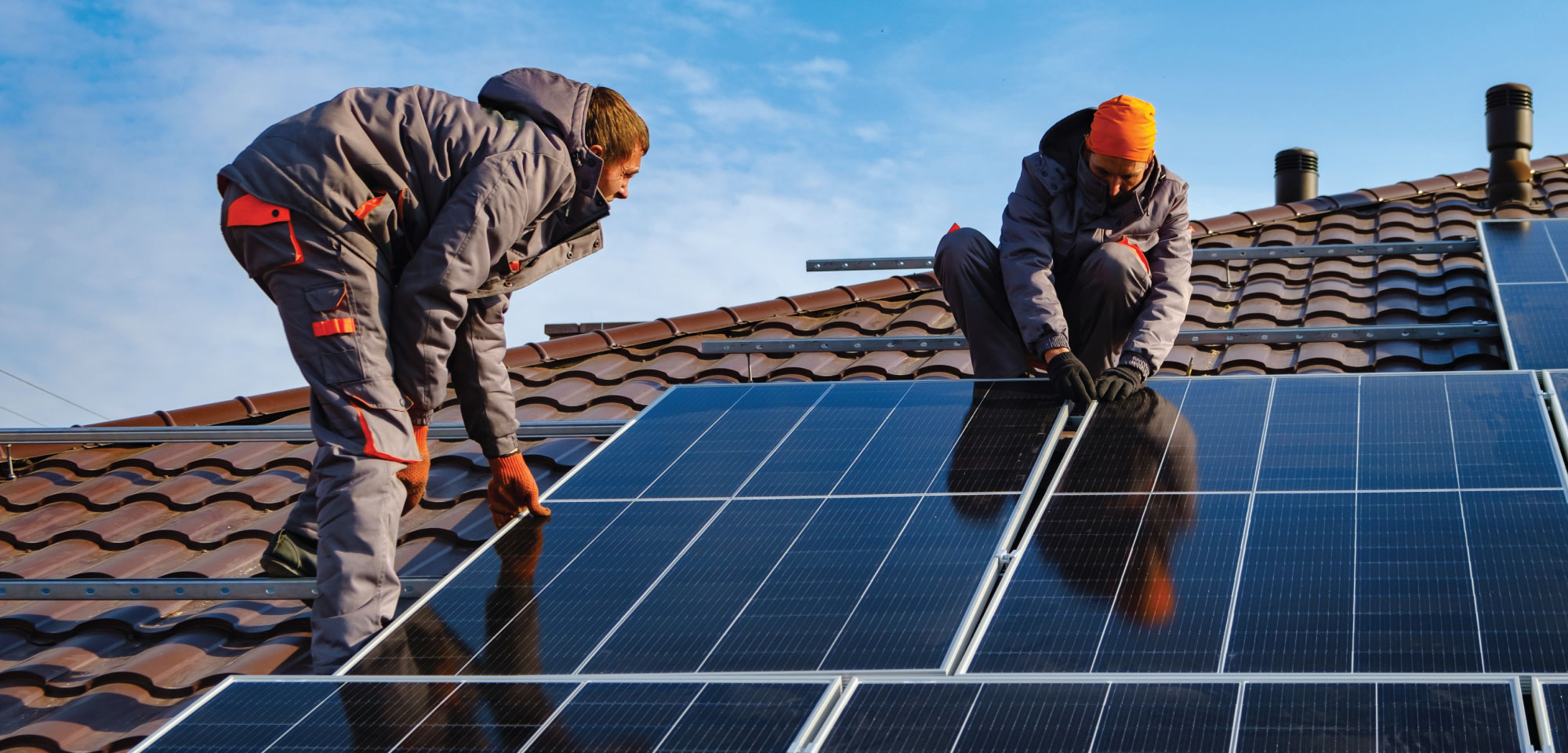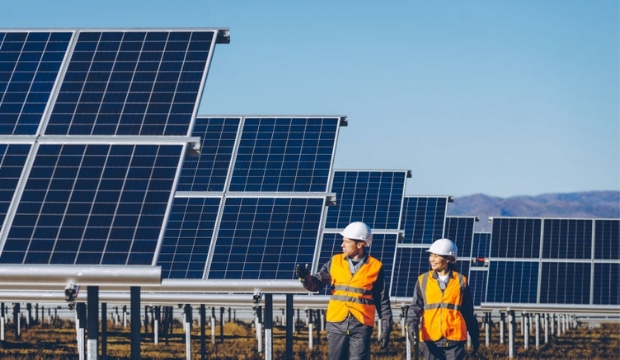Some Of Solar Panel Company
Some Of Solar Panel Company
Blog Article
Solar Panel Cost in Virginia: Lumina Solar Concentrates On Offering Advanced Photovoltaic Solutions For Homes And Companies
History and Founding
Have you ever wondered how a solar panel business springs from a mere trigger of inspiration into a powerhouse of renewable energy? It frequently begins with a vision-- one fueled by a blend of development, decision, and a pinch of serendipity. The journey of many solar companies mirrors the development of the technology itself: from large, ineffective panels to streamlined, high-efficiency marvels harnessing the sun's bounty.
The Early Days
In the late 20th century, when solar power was still a niche concept, leaders planted seeds for what would become an international motion. Imagine a small workshop filled with curious engineers, relentlessly experimenting with solar batteries. check here Their passion was palpable, frequently driven by a desire to fight environment modification and lower reliance on nonrenewable fuel sources.
One such anecdote is about a creator who, inspired by a camping journey, understood that even in remote locations, the sun could power vital gadgets. This basic observation stimulated a business's mission to democratize access to clean energy.
Founding Concepts

- Innovation: Constantly pressing the limits of solar technology to improve effectiveness and resilience.
- Sustainability: Dedicating to environmentally friendly production and minimizing carbon footprints.
- Accessibility: Making renewable energy services economical and practical for everyday users.
Turning points in Development
| Year | Key Occasion |
|---|---|
| 1985 | Company established in a small garage, concentrating on research and advancement. |
| 1995 | Very first business solar panel item released, gaining regional attention. |
| 2005 | Broadened to global markets, welcoming global eco-friendly energy objectives. |
| 2015 | Presented advanced photovoltaic panel innovation with enhanced energy conversion. |
Isn't it interesting how these incremental actions, often ignored, shape the energy landscape today? The solar panel business story is not almost innovation; it's about an unrelenting quest for a brighter, cleaner future.

Innovations in Solar Panel Technologies
Ever noticed how some photovoltaic panels shine brighter and last longer? It's not magic; it's the science of photovoltaic performance. Modern solar panel companies invest greatly in innovations like bifacial cells, which catch sunlight from both sides, boosting energy harvest without expanding roof space. Have you ever questioned why some panels perform much better on cloudy days? That's due to advances in thin-film solar innovation, which prospers under diffused light conditions.
Item Variations Tailored to Unique Needs
One size never fits all. Solar panel companies now provide:
- Monocrystalline panels for maximum performance and sleek aesthetics, perfect for space-constrained roofs.
- Polycrystalline panels, which offer a cost-efficient alternative without compromising too much output.
- Building-integrated photovoltaics (BIPV), combining solar tech effortlessly into architectural aspects like windows and facades.
Selecting the right product isn't practically in advance expense; it has to do with matching your environment, energy goals, and long-lasting cost savings. For example, homes shaded by trees require panels that master low-light situations, something lots of ignore till energy expenses climb suddenly.
Technical Tips for Optimum Choice
- Examine the temperature coefficient-- lower values imply panels lose less performance on hot days.
- Look for panels with improved anti-reflective coverings to optimize light absorption.
- Think about the panel's guarantee not simply for flaws, however for guaranteed power output over years.
- Don't underestimate the significance of the inverter innovation coupled with the panels; it can make or break your system's efficiency.
Beyond Panels: Emerging Trends
Think of solar panels that adjust their angle instantly to go after the sun-- tracking systems are ending up being more accessible, increasing yield significantly. Or solar tiles that mix undetectably into your roofline, transforming your home into a silent, self-sufficient power generator. These developments are reshaping what a solar panel business provides-- not just items, however incorporated energy options.
Market Existence and Global Operations
Ever question why some photovoltaic panel companies appear to sprout up in every corner of the world while others hardly make a ripple? The distinction lies not just in innovation but in mastering the art of navigating diverse markets. Expanding worldwide is like planting seeds in various climates-- you must comprehend each environment's distinct conditions to prosper.
Take, for instance, the elaborate dance of logistics and supply chain management. Shipping panels halfway throughout the world isn't almost distance; it's about timing, custom-mades, tariffs, and adjusting to local demand variations. A company with robust global operations prepares for these variables, making sure panels arrive on schedule without inflating expenses. This foresight is no little feat and often separates market leaders from followers.
Key Techniques for Expanding Market Presence
- Localized production: Establishing production centers near target audience minimizes shipping hold-ups and import complexities.
- Strategic collaborations: Working together with local firms accelerates market penetration and builds trust.
- Adaptive product style: Tailoring photovoltaic panel tech to weather, sun intensity, and infrastructure subtleties boosts performance and approval.
What about the human factor? Photovoltaic panel companies operating internationally should fix up cultural distinctions and regulatory subtleties without forgeting their core mission. What works in a sun-drenched desert might fail in a humid coastal area. In some cases, the most innovative solution is just listening-- absorbing regional insights to improve innovation and approach.
Professionals often advise a phased rollout instead of a shotgun growth. Why risk overextension when measured development builds sustainable momentum? Scaling sensibly implies balancing aspiration with operational durability - Solar Panel Company. In the race for sustainable energy dominance, patience can be as important as speed.
Environmental Impact and Sustainability Practices
When photovoltaic panels initially emerged, many assumed they carried no ecological luggage. The truth is more nuanced. The production of photovoltaic cells includes uncommon earth metals and energy-intensive procedures, which can leave a substantial carbon footprint before the panels even reach rooftops. Yet, the real ecological expense depends heavily on the sustainability practices utilized by the photovoltaic panel business throughout the lifecycle of their items.
How typically do we stop briefly to consider what occurs to solar panels at the end of their useful life? Unlike batteries or electronics, photovoltaic panels can last 25-30 years, however disposal and recycling pathways remain underdeveloped in lots of areas. A business dedicated to reducing ecological harm will have a robust prepare for recycling photovoltaic materials, restoring important silicon, glass, and metals to prevent land fill accumulation.
Secret Sustainability Methods
- Making use of low-impact manufacturing techniques that reduce water and energy consumption.
- Executing closed-loop systems to recycle production waste back into new panels.
- Participating in transparent supply chain audits to make sure ethical sourcing of raw products.
- Creating panels for easier disassembly to help future recycling efforts.
It's worth noting that some solar business have actually originated innovative methods, such as incorporating biodegradable components or utilizing less hazardous chemicals during fabrication. This not just lowers environmental strain but likewise sets a precedent for the industry. The question stays: can the solar industry genuinely pivot towards a circular economy design without compromising effectiveness or cost?
Professional Tips for Examining Sustainability
- Inquire about the business's commitment to carbon-neutral production and whether they offset emissions.
- Investigate if they partner with certified recycling facilities committed to solar panel waste.
- Look for transparency reports detailing ecological impacts and sustainability goals.
- Think about the longevity and guarantee of panels as an indirect measure of resource effectiveness.
In the end, selecting solar power needs to suggest more than just slashing electrical power expenses; it has to do with supporting a future where energy is harvested responsibly and waste is thoughtfully handled. Solar panel business that embrace this approach not only light up homes but likewise cast a brighter light on sustainable innovation.
Report this page